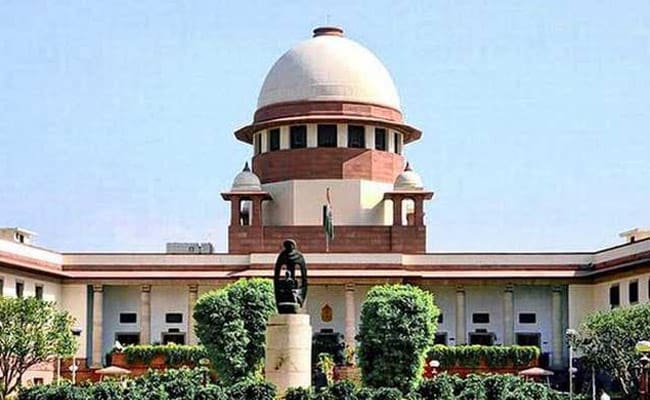Supreme Court Denies Establishment of Investigation Team for Electoral Bonds Scheme
New Delhi:
The Supreme Court on Friday rejected petitions requesting a court-monitored SIT probe – under the supervision of a retired Justice of the top court – into the sale of (now prohibited) electoral bonds amid allegations of “quid pro quo” arrangements between political parties and corporate donors.
The court stated that individual complaints – relating to specific claims of quid pro quo deals between a political party and a corporate organization – “must be pursued based on remedies available under the law”, which include options in case authorities refuse to investigate particular claims.
“Currently, without resorting to remedies available in law, it would be premature and unsuitable for this court (to interfere)… because intervention should come (after) exhaustion of those remedies… at this point the court cannot determine if these standard remedies will not be effective,” the court stated.
The petitions were lodged by activist groups Common Cause and Centre for Public Interest.
The petitioners had requested directives to law enforcement agencies to investigate funding of political parties through “shell and loss-making companies” as revealed by data released by the Election Commission.
Electoral bonds were terminated in February. In a groundbreaking decision weeks before the Lok Sabha election, the court ruled that undisclosed funding to political parties violated voters’ right to transparency.
“Most Remarkable Corruption Case…”
The issue returned to the top court this morning with a set of four petitions, including one seeking the court-monitored SIT probe. Senior advocate Prashant Bhushan argued that a special inquiry was warranted because “governments are involved… ruling party and top corporate houses are involved”.
“There is a money trail of over Rs 8,000 crore! In some instances, companies like IFB Agro paid Rs 40 crore in bonds as it was facing challenges in Tamil Nadu… this is not limited to one political party,” he stated.
“Most extraordinary case of corruption… one of the worst financial scams in India’s history,” he added, “Unless investigation is supervised by retired Justice of this court, nothing will be revealed.”
“No party should be allowed to retain money received as kickbacks and bribes…”
However, the court seemed unconvinced and suggested the petitioner “allow the usual course (of events)” to follow its landmark ruling this year, which included instructing the State Bank of India to disclose data identifying donors and the parties to which donations – many in crores – were made.
“We ordered disclosure. We reached a point… we invalidated the scheme. What would an SIT investigate now?” the court inquired. Mr. Bhushan responded, “If there was quid pro quo… and who was involved?”
A still uncertain court pointed out “this would essentially be an open-ended inquiry”.
“Can we appoint a SIT when there are remedies available in law?” the Chief Justice questioned.
“This would be an extensive and unrestricted inquiry,” Justice JB Pardiwala added, “You (Mr. Bhushan) mentioned shell companies are involved… so what can SIT do? What do you expect SIT to do…?”
The petitioner insisted, “Examine those cases in which prima facie evidence has come to light through investigative reports by media organizations”, and referenced the coal mining block scandal.
“In that instance court invalidated leases on grounds of arbitrariness and felt there were enough circumstances to investigate the mining leases,” Mr. Bhushan argued, referring to another allegation of quid pro quo – the award of a contract after purchase of bonds worth Rs 140 crore.
Some donations, he continued, were made by pharmaceutical companies (and) “after receiving the bonds inquiries against them by drug control agency went silent…”
“So many companies donated within three years of incorporation. Am only asking SIT investigates quid pro quo… no other investigation can reach any conclusion or carry any credibility.”
The court, however, remained doubtful. “Has any word of (any) contract been challenged in any writ? Is there any material to show award X for price Y? There has to be data for SIT to probe this…”
“We are of the opinion that setting up a SIT is not the solution,” the court declared.
Electoral Bonds
Notified by the ruling BJP in January 2018, this was pitched as an alternative to cash donations made to political parties as part of its efforts to bring in transparency in political funding.
But the court called the scheme unconstitutional and said information about political funding is essential for voters to make electoral choices. Such a system – meaning electoral bonds – could lead to governments tweaking national policies in favor of donors, many of which were large corporates.
The BJP had maintained the scheme, though not flawless, helped eliminate black money, referring to unaccounted cash or funds from criminal activities, in election campaigns. Prime Minister Narendra Modi called the court’s decision one “everyone will regret when there is honest reflection”.
“We were looking for a way. We found a small way… never claimed this was absolute,” he said, building on comments from earlier this month, when he told a Tamil news channel “no system is perfect… shortcomings can be improved”.
Waiting for response to load…

